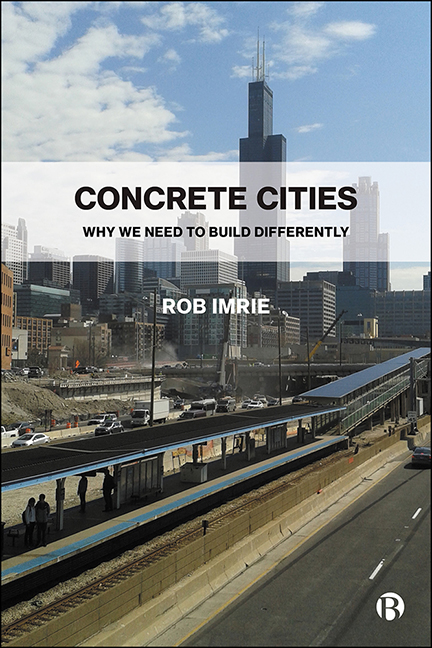Book contents
- Frontmatter
- Contents
- List of Figures
- About the Author
- Preface
- 1 Introduction: The Omnipresent Nature of Building
- 2 The Significance of Building and Construction
- 3 Building and the Construction State
- 4 Speculation and Building Booms
- 5 Disruption, Displacement and Dispossession
- 6 Demolition: Wasting the City and Teardown Building
- 7 Why Building More Housing Will Not Work
- 8 Building That Matters to People
- 9 Constructing for Species Survival
- 10 Building and Construction That Cares
- Notes
- References
- Index
7 - Why Building More Housing Will Not Work
Published online by Cambridge University Press: 30 April 2022
- Frontmatter
- Contents
- List of Figures
- About the Author
- Preface
- 1 Introduction: The Omnipresent Nature of Building
- 2 The Significance of Building and Construction
- 3 Building and the Construction State
- 4 Speculation and Building Booms
- 5 Disruption, Displacement and Dispossession
- 6 Demolition: Wasting the City and Teardown Building
- 7 Why Building More Housing Will Not Work
- 8 Building That Matters to People
- 9 Constructing for Species Survival
- 10 Building and Construction That Cares
- Notes
- References
- Index
Summary
Introduction
On a recent train journey through the English West Country, my views of the beautiful countryside were interrupted by the sight of newly constructed housing estates at the edge of villages and towns. What were once green fields and open countryside were being converted into building sites and rows of uniform housing as part of the intensification of suburban and ex-urban development that has its roots in the early 20th century. This latest round of building is part of a new offensive encouraged by successive British governments in the belief that the best way to provide housing for all is to increase the rates of private house building and construction. The views of many politicians and social commentators are that Britain's housing crisis is the product of a deficit in the supply of properties, and that this is resulting in house price inflation that is pricing out many people from gaining access to decent, affordable dwellings. The remedy is to build more, primarily private market housing so that supply will overtake demand and, so it is alleged, depress the price of dwellings and make them more affordable.
In the chapter, I take issue with this market logic and the ‘building more’ argument, and critique its simplistic model of housing that does not convey how markets are manipulated and controlled in ways whereby prices are not simply responses to movements in supply and demand. I note that encouraging the speculative construction of dwellings is not a panacea for the housing crisis. Rather, speculative house building does no more than (re)produce housing that will sell at prices well beyond what many people can afford, and that is often located in places where it is not needed. People's housing needs run deeper than can be solved solely by building more, and it is wrong to think that private house builders, looking to extract as much profit as possible from house sales, ought to be in the vanguard of seeking to solve the diverse problems people face in gaining access to good-quality, affordable dwellings.
In developing these views, I divide the chapter into three parts. First, I set out the key arguments of house-building advocates for why constructing more housing is a solution to the problems people face in gaining access to good-quality, affordable dwellings.
- Type
- Chapter
- Information
- Concrete CitiesWhy We Need to Build Differently, pp. 137 - 155Publisher: Bristol University PressPrint publication year: 2021



